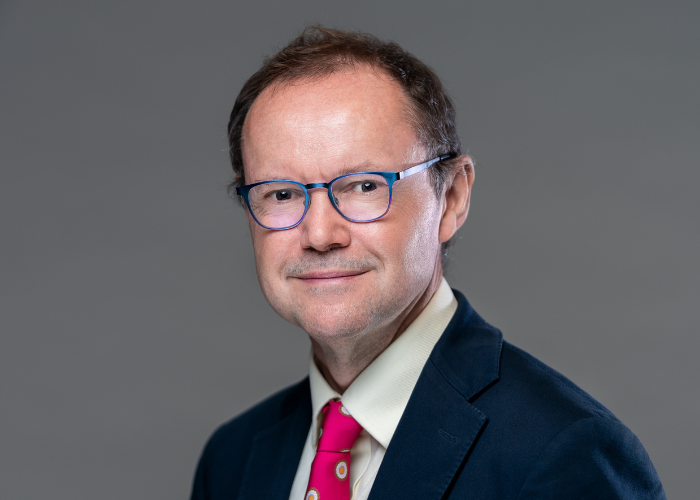
With renewed support from a $5.5-million Terry Fox New Frontiers Program Project Grant, leading researchers from BC Cancer and the University of British Columbia (UBC) are determined to change how we understand and treat sarcomas – rare and aggressive bone and soft tissue cancers that disproportionately affect young people.
Co-led by Dr. David Huntsman, distinguished scientist at the BC Cancer Research Institute and a professor at UBC, and Dr. Torsten Nielsen, professor at UBC and sarcoma clinician-scientist at Vancouver General Hospital, the team will focus on six specific sarcomas: synovial sarcoma, DICER1-associated sarcomas, desmoplastic small round cell tumour, osteosarcoma, Ewing sarcoma and tenosynovial giant cell tumour.
Though distinct, many of these sarcomas share a unique feature: they’re caused by a single, traceable genetic mutation. This clarity offers researchers a rare opportunity.
“In most adult cancers, the genome is so complex that it’s hard to pinpoint what’s driving the disease,” says Dr. Huntsman. “But in the sarcomas we’re studying, especially in younger patients, a single mutation often plays a major role, and that gives us a much clearer place to start.”
That starting point could unlock insights not only into these cancers, but also other rare and understudied forms of cancer.
A coordinated effort
The project brings together multiple teams, each tackling a critical piece of the puzzle.
One team, led by Dr. Huntsman and Dr.Michael Underhill (UBC), will investigate how sarcomas arise and progress in children, adolescents and young adults.
A second team led by Dr. Martin Hirst and Dr. Andrew Roth (BC Cancer, UBC) will focus on the genomes of synovial sarcomas to better detect and treat high-risk cases.
A third team, led by Dr. Samuel Aparicio, Dr. Adi Steif and Dr. Peter Stirling (BC Cancer, UBC), will explore whether new DNA-targeting drugs can treat osteosarcomas more effectively.
And a fourth, led by Dr. Nielsen and Dr. Poul Sorensen (UBC, BC Cancer), will study the tumour microenvironment – specifically the non-cancerous cells around sarcomas – to develop therapies that target the cancer’s support system.
These projects will be supported by a clinical core, led by Dr. Julia Naso (UBC, VCHRI) and Dr. Alannah Smrke (BC Cancer, UBC), a scientific advisory board and a Patient and Family Advisory Council.
“Having patient and family partners ensures we stay focused and grounded in the real-world impact of our work,” says Dr. Nielsen. “It enriches the trainee experience and helps us share findings with those most affected by these diseases.”
From research to real-world impact
“The best care starts with the right diagnosis, but in rare cancers, that’s often the hardest part,” says Dr. Huntsman. “This research is already changing that.”
With previous Terry Fox funding, the team developed a single test now used internationally to detect more than 50 types of sarcoma, replacing dozens of complex tests, reducing costs and dramatically accelerating diagnosis.
Now, with renewed support, they hope to replicate that success, developing better, less toxic treatments that help young people survive cancer and live well beyond it.
“Our goal is to do for these sarcomas what’s already been done for osteosarcoma,” says Dr. Nielsen, who was inspired to become a researcher because of Terry Fox and has been supported by Terry Fox funding since the beginning of his career.
“It took decades, but survival rates for osteosarcoma have improved dramatically. Now, we’re working to bring that same progress to other sarcomas – again and again – and to train the next generation who can keep pushing that work forward.”
This article has been adapted from its original version. Read the Terry Fox Research Institute story here.